When importing goods from China to Saudi Arabia, the choice of shipping method can significantly impact business operations and cost efficiency. Sea freight has become increasingly popular among importers due to its numerous advantages. This comprehensive guide explores the key benefits of sea freight, including its cost-effectiveness, capacity for large shipments, and eco-friendly nature. Additionally, we will delve into the various types of sea freight services available, the factors affecting shipping costs and transit times, and the importance of selecting a reliable freight forwarder. By understanding these aspects, businesses can optimize their logistics strategies and ensure smooth import operations.
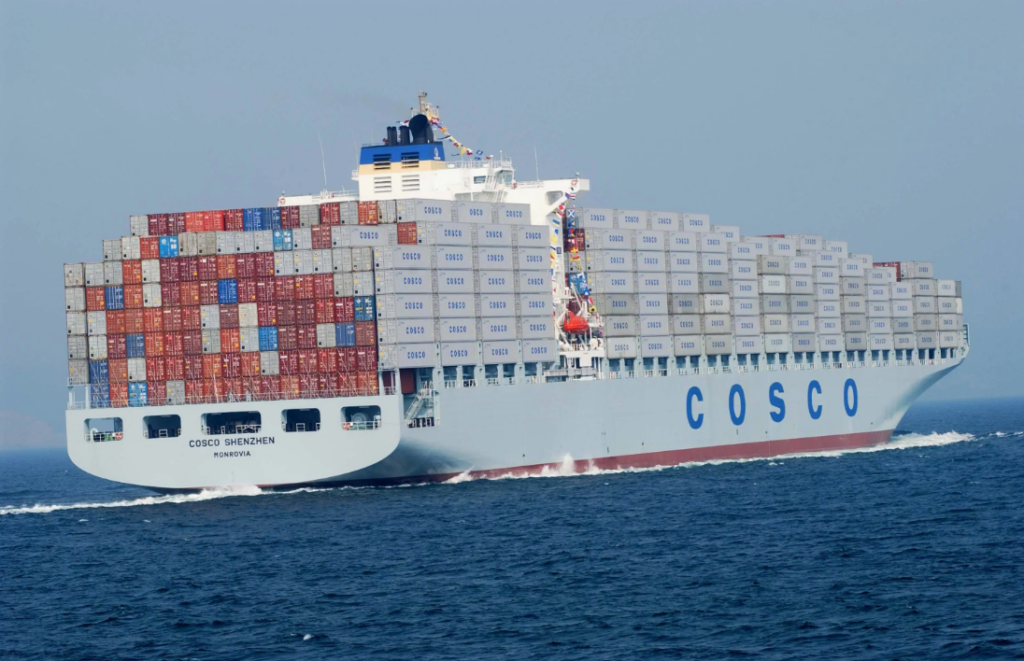
Why Choose Sea Freight for Shipping from China to Saudi Arabia?
When importing goods from China to Saudi Arabia, selecting the right shipping method is critical. Sea freight has emerged as a preferred choice for many importers, thanks to its myriad advantages. Below, we detail the key reasons why sea freight is an effective solution for shipping needs.
Cost-Effective
One of the most compelling reasons to opt for sea freight is its cost-effectiveness. Compared to air freight, sea freight rates are significantly lower, especially for large volumes. This is particularly beneficial for businesses looking to optimize their shipping costs while importing goods in bulk. The cost advantages become more pronounced with larger shipments, making sea freight an economical choice for importing goods from China to Saudi Arabia.
Accommodates Large Shipments
Sea freight services excel in handling large shipments, enabling businesses to transport vast quantities of goods efficiently. Container ships can carry substantial loads, allowing importers to ship everything from raw materials to finished products in large volumes. This capacity is particularly important for businesses that deal with bulk goods and require an efficient method to manage their import logistics.
Versatile Container Options
Shipping lines offer a variety of container options tailored to meet different needs. From standard containers to refrigerated containers (also known as reefers), the versatility ensures that businesses can choose the right type of container for their specific goods. For example, perishables, electronics, and heavy machinery can all be shipped securely using the appropriate container type, safeguarding the integrity of the shipment.
Reliable Transit Times
While sea freight may take longer than air freight, the reliability of transit times is commendable. Shipping schedules are generally well-structured, providing predictable arrival dates. Importers can plan their inventory and logistics accordingly, minimizing disruptions in their supply chain. With numerous shipping lines available, finding a reliable service provider for your shipment needs becomes easier.
Environmentally Friendly
In an era where sustainability is increasingly important, sea freight stands out as a more environmentally friendly option. Transporting goods via sea generates lower greenhouse gas emissions per ton compared to air transport. This characteristic aligns well with the growing focus on sustainability and corporate responsibility in global trade, appealing to businesses looking to enhance their eco-friendly credentials.
Reduced Risk of Damage
The nature of sea freight shipping often results in a reduced risk of cargo damage. Containers provide robust protection against elements such as weather, humidity, and impact during transport. Furthermore, shipping lines implement stringent handling procedures to ensure cargo is treated with care throughout the journey. This reliability can provide peace of mind to importers concerned about the integrity of their goods during transit.
Types of Sea Freight Services
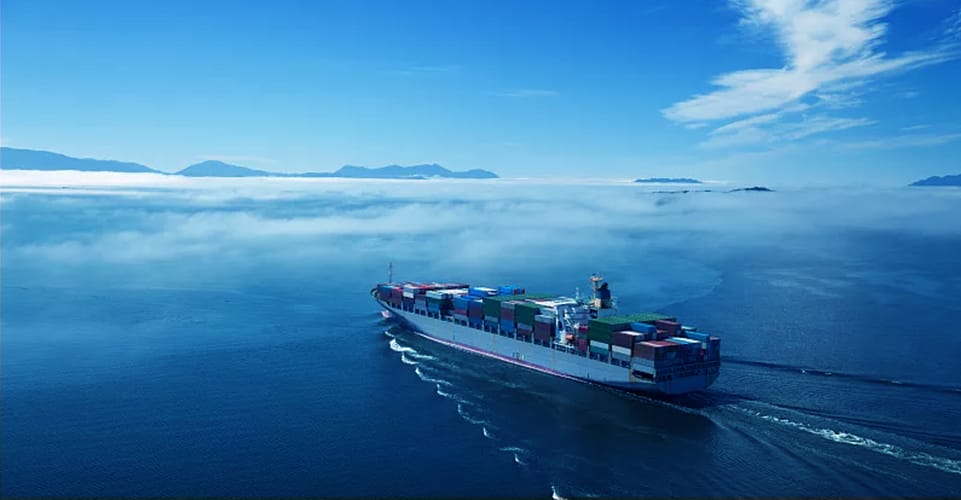
When selecting sea freight for shipping from China to Saudi Arabia, understanding the different types of services available is crucial. Two primary options exist: Less Than Container Load (LCL) and Full Container Load (FCL).
Less Than Container Load (LCL)
LCL is an ideal solution for businesses that need to ship smaller shipments. This service entails sharing container space with other consignments, making it a cost-effective option for those transporting goods that do not fill an entire container. LCL is particularly advantageous for businesses that may not have regular large shipments but require flexibility in logistics. Importers benefit from lower shipping costs while still accessing global markets.
Full Container Load (FCL)
For larger shipments, FCL service is the preferred choice. Importers using FCL have exclusive use of an entire container, allowing for more significant quantities of goods to be transported in a single shipment. This service is particularly beneficial for businesses looking to streamline their logistics, minimize handling, and ensure the security of their products during transit. FCL can also lead to faster turnaround times, as goods are shipped directly without the need for consolidation or deconsolidation processes associated with LCL.
Comparison of LCL vs. FCL
| Feature | Less Than Container Load (LCL) | Full Container Load (FCL) |
|---|---|---|
| Shipment Size | Smaller shipments; shares container space | Larger shipments; exclusive use of container |
| Cost | More economical for small shipments | More cost-effective for larger volumes |
| Transit Time | May take longer due to consolidation | Generally faster with direct shipping |
| Risk of Damage | Higher risk of handling damage | Lower risk with dedicated container handling |
| Flexibility | High flexibility for varying shipment sizes | Less flexibility; requires full container usage |
In summary, selecting the right sea freight solution for importing goods from China to Saudi Arabia can significantly enhance logistical efficiency. Whether you choose LCL for smaller loads or FCL for larger shipments, partnering with a reliable freight forwarder can optimize your shipping experience. Dantful International Logistics offers A Highly Professional, Cost-effective And High-quality, One-Stop International Logistics Service Provider For Global Traders, ensuring your shipments are handled with care and expertise. Explore their comprehensive freight forwarding services to facilitate your import needs effectively.
Shipping From China to Middle East Countries:
- Shipping from China to Saudi Arabia
- Shipping from China to UAE
- Shipping from china to KUWAIT
- Shipping From China To EGYPT
- Shipping from China to Bahrain
- Shipping From China To Jordan
- Shipping From China To Israel
- Shipping from China to Qatar
- Shipping From China To IRAQ
- Shipping from China to Iran
Factors Affecting Sea Freight Costs and Delivery Times
When shipping goods from China to Saudi Arabia via sea freight, several critical factors can influence both costs and delivery times. Understanding these factors can help businesses make well-informed decisions and optimize their shipping strategies.
Shipping Ports
The selection of shipping ports plays a pivotal role in determining transit times and overall shipping costs. Major ports in China, such as Shanghai, Shenzhen, and Ningbo, are well-connected and frequently serviced, which can significantly expedite the shipping process. Similarly, ports in Saudi Arabia, including Jeddah, Dammam, and Yanbu, vary in terms of their capacity and operational efficiency.
Below is a comparative table that highlights the major ports in China and Saudi Arabia, outlining their impact on transit times:
| Port (China) | Major Routes | Average Transit Time to Saudi Arabia | Port Efficiency |
|---|---|---|---|
| Shanghai | Global shipping routes | 25-30 days | High |
| Shenzhen | Asia, North America | 22-27 days | Very High |
| Ningbo | Asia, Europe | 26-32 days | High |
| Guangzhou | Asia, Middle East | 24-29 days | Medium |
| Port (Saudi Arabia) | Major Imports | Average Handling Time | Port Capacity |
|---|---|---|---|
| Jeddah | General cargo, containers | 2-5 days | High |
| Dammam | Vehicles, machinery | 3-6 days | Medium |
| Yanbu | Chemicals, oil products | 3-4 days | Medium |
Shipment Size and Weight
The size and weight of the shipment are significant determinants of shipping costs. Shipping lines typically charge based on either the actual weight or the volumetric weight of the cargo, whichever is greater. Larger and heavier shipments can lead to higher costs, but they may also benefit from economies of scale, especially when using Full Container Load (FCL) services. It is crucial for importers to accurately measure their cargo dimensions and weight to avoid unexpected charges.
Commodity Type
Different commodity types can attract varying shipping requirements, impacting both costs and delivery times. Some goods may have restrictions or require special handling due to their nature. For example:
-
Hazardous Materials: Importing hazardous materials mandates compliance with stringent safety regulations. This often results in additional fees and longer handling times as the cargo requires specialized containers and documentation.
-
Perishable Items: Goods such as food or pharmaceuticals may require temperature-controlled containers, further elevating shipping costs. Additionally, the urgency of shipping perishable items typically demands expedited transit, influencing the choice of shipping service.
Understanding the nuances of your commodity is essential for ensuring compliance with shipping regulations and avoiding unexpected fees.
Sea Freight Costs from China to Saudi Arabia
When assessing the costs associated with sea freight from China to Saudi Arabia, it is crucial to consider both the base rates for containers and any additional fees or charges that may apply.
Cost per Container
The cost per container varies based on size and specific shipping routes. Below is a comparative table illustrating the rates for 20ft and 40ft containers based on common shipping routes:
| Container Size | Average Cost (USD) | Common Ports Pairs | Notes |
|---|---|---|---|
| 20ft | $1,500 – $2,000 | Shanghai to Jeddah, Ningbo to Dammam | Prices vary based on demand and season |
| 40ft | $2,500 – $3,500 | Shenzhen to Yanbu, Guangzhou to Jeddah | Larger shipments often have better rates |
| 40ft High Cube | $2,800 – $3,600 | Shanghai to Dammam, Shenzhen to Jeddah | Provides additional height for cargo |
Additional Fees and Charges
Beyond the base container cost, various additional fees and charges can influence the overall expense of shipping. Importers should be aware of the following:
-
Customs Duties and Taxes: Import duties can vary significantly based on the type of goods being imported into Saudi Arabia. Importers should consult local regulations to understand applicable rates.
-
Documentation Fees: Fees for preparing necessary shipping documents, such as bills of lading and certificates of origin, can also add to overall costs.
-
Handling and Storage Costs: Depending on the port of arrival, there may be fees associated with handling goods upon arrival, including unloading, warehousing, and loading fees.
Understanding these costs allows businesses to budget accurately for their imports, mitigating the risk of unexpected financial burdens.
By thoroughly considering these factors and understanding the associated costs, importers can make informed decisions about shipping strategies, ensuring effective logistics and successful operations when importing goods from China to Saudi Arabia. Dantful International Logistics offers specialized services that can help navigate the complexities of international shipping, providing tailored solutions for your freight forwarding needs. For more information, explore Dantful’s freight forwarding services and optimize your shipping strategy.
Sea Freight Transit Times from China to Saudi Arabia
When shipping goods from China to Saudi Arabia via sea freight, understanding transit times is crucial for logistics planning and inventory management. Transit times can vary based on several factors, including the shipping method selected and the specific ports involved.
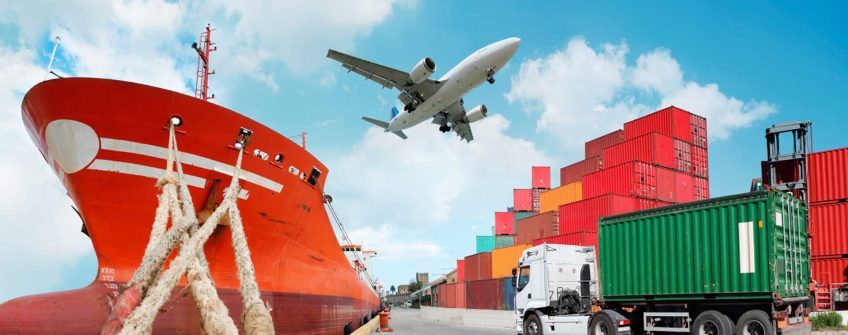
Port-to-Port Delivery
Port-to-port delivery typically involves transporting goods directly between major shipping ports in China and Saudi Arabia. Here are the typical transit times for some prominent port pairs:
| Port Pair | Average Transit Time (Days) | Factors Affecting Delivery Times |
|---|---|---|
| Shanghai to Jeddah | 25-30 | Weather conditions, shipping schedules, port congestion |
| Shenzhen to Dammam | 22-27 | Seasonal demand fluctuations, vessel availability |
| Ningbo to Yanbu | 26-32 | Customs inspections, loading and unloading times |
| Guangzhou to Jeddah | 24-29 | Port efficiency, operational delays |
Factors Affecting Port-to-Port Delivery Times
-
Weather Conditions: Adverse weather can impede maritime operations, leading to potential delays.
-
Shipping Schedules: The frequency of sailings between the selected ports can affect how quickly a vessel departs and arrives.
-
Port Congestion: Busy ports may experience delays in loading and unloading operations, extending transit times.
-
Customs Inspections: Regulatory checks can result in holdups before cargo is cleared for transit, impacting overall delivery schedules.
Door-to-Door Delivery
Door-to-door delivery encompasses the entire logistics process, from the point of origin to the final destination within Saudi Arabia. This method often integrates multiple modes of transport, including sea freight and land transportation. Key components of this service include:
-
Importance of Efficient Customs Clearance: Smooth customs processes are essential for minimizing delays in door-to-door delivery. Efficient customs clearance ensures that goods are processed quickly and are allowed entry into Saudi Arabia without unnecessary hold-ups. Partnering with a freight forwarder that has expertise in customs regulations can significantly expedite this phase.
-
Impact of Last-Mile Delivery: The final leg of the journey, known as last-mile delivery, plays a critical role in overall shipping efficiency. Delays in last-mile logistics can arise from traffic conditions, route planning, and local regulations. Utilizing a logistics provider with strong last-mile capabilities is vital for ensuring timely delivery to the end customer.
Choosing a Reliable Freight Forwarder
Selecting the right freight forwarder is a pivotal aspect of the shipping process, particularly for businesses importing goods from China to Saudi Arabia. A reliable freight forwarder can help ensure that shipments are handled efficiently and economically.
Factors to Consider
-
Experience in China-Saudi Arabia Trade: A freight forwarder with extensive experience in the China-Saudi Arabia trade will have a better understanding of the unique challenges and requirements associated with this route. Their familiarity with the logistics landscape, including specific regulations and common pitfalls, can lead to smoother operations.
-
Service Quality and Customer Support: Quality of service is paramount when choosing a freight forwarder. Look for providers that offer personalized customer support, quick response times, and transparent communication throughout the shipping process. Good customer service can help address any issues that may arise and facilitate a seamless logistics experience.
-
Customs Clearance Expertise: Navigating the complexities of customs regulations can be daunting. A freight forwarder with strong customs clearance expertise can help ensure compliance with all necessary regulations, reducing the risk of delays and additional costs. They should provide guidance on documentation requirements and assist in managing any customs-related challenges.
Incorporating these considerations into the decision-making process can enhance the overall shipping effectiveness for businesses importing goods from China to Saudi Arabia. Dantful International Logistics stands out as a Highly Professional, Cost-effective And High-quality, One-Stop International Logistics Service Provider For Global Traders, offering tailored solutions that ensure efficiency and reliability in every shipment. To explore comprehensive freight forwarding services tailored to your needs, visit Dantful today.
Dantful International Logistics Services:
- Dantful Ocean Freight Services
- Air Freight From China
- Amazon FBA Freight Forwarding
- WAREHOUSE Services
- One-Stop Customs Clearance Solution
- Cargo Insurance Services in China
- DDP Shipping Services By Dantful Logistics
- Out of Gauge Cargo Transportation Shipping Services
FAQs
1. What are the main advantages of using sea freight for shipping from China to Saudi Arabia?
Sea freight is cost-effective, especially for large shipments, making it ideal for bulk imports. It can accommodate substantial volumes of goods, offers various container options, has reliable transit times, is environmentally friendly, and reduces the risk of cargo damage.
2. What types of sea freight services are available?
The two primary types are Less Than Container Load (LCL) and Full Container Load (FCL). LCL is suitable for smaller shipments that share container space, while FCL is designed for larger loads that require exclusive use of an entire container.
3. How do the costs of LCL and FCL compare?
LCL is more economical for smaller shipments, while FCL becomes more cost-effective for larger volumes due to economies of scale. However, FCL generally offers faster transit times since it doesn’t involve consolidation or deconsolidation processes.
4. What factors affect sea freight costs and delivery times?
Key factors include:
- Shipping Ports: Choosing well-connected ports can expedite shipping times.
- Shipment Size and Weight: Costs depend on actual and volumetric weight.
- Commodity Type: Certain goods may incur additional handling fees or require special transport conditions.
5. What are the average transit times for sea freight?
Transit times typically range from 22 to 32 days, depending on the specific port pair and shipping conditions. For example, shipping from Shanghai to Jeddah may take 25-30 days.
6. What are additional fees associated with sea freight?
In addition to the base rate, importers should budget for customs duties, documentation fees, and handling or storage costs at the port of arrival.
7. How can I ensure my shipment arrives safely and on time?
Choosing a reliable freight forwarder experienced in the China-Saudi Arabia trade is crucial. They should provide excellent customer support, customs clearance expertise, and efficient logistics management.

Young Chiu is a seasoned logistics expert with over 15 years of experience in international freight forwarding and supply chain management. As CEO of Dantful International Logistics, Young is dedicated to providing valuable insights and practical advice to businesses navigating the complexities of global shipping.


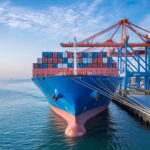







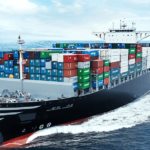
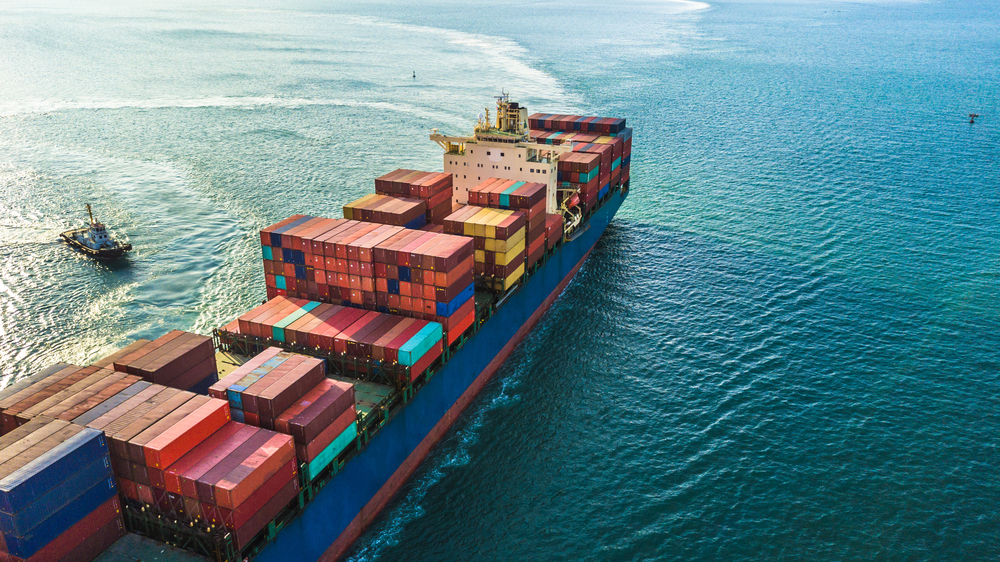
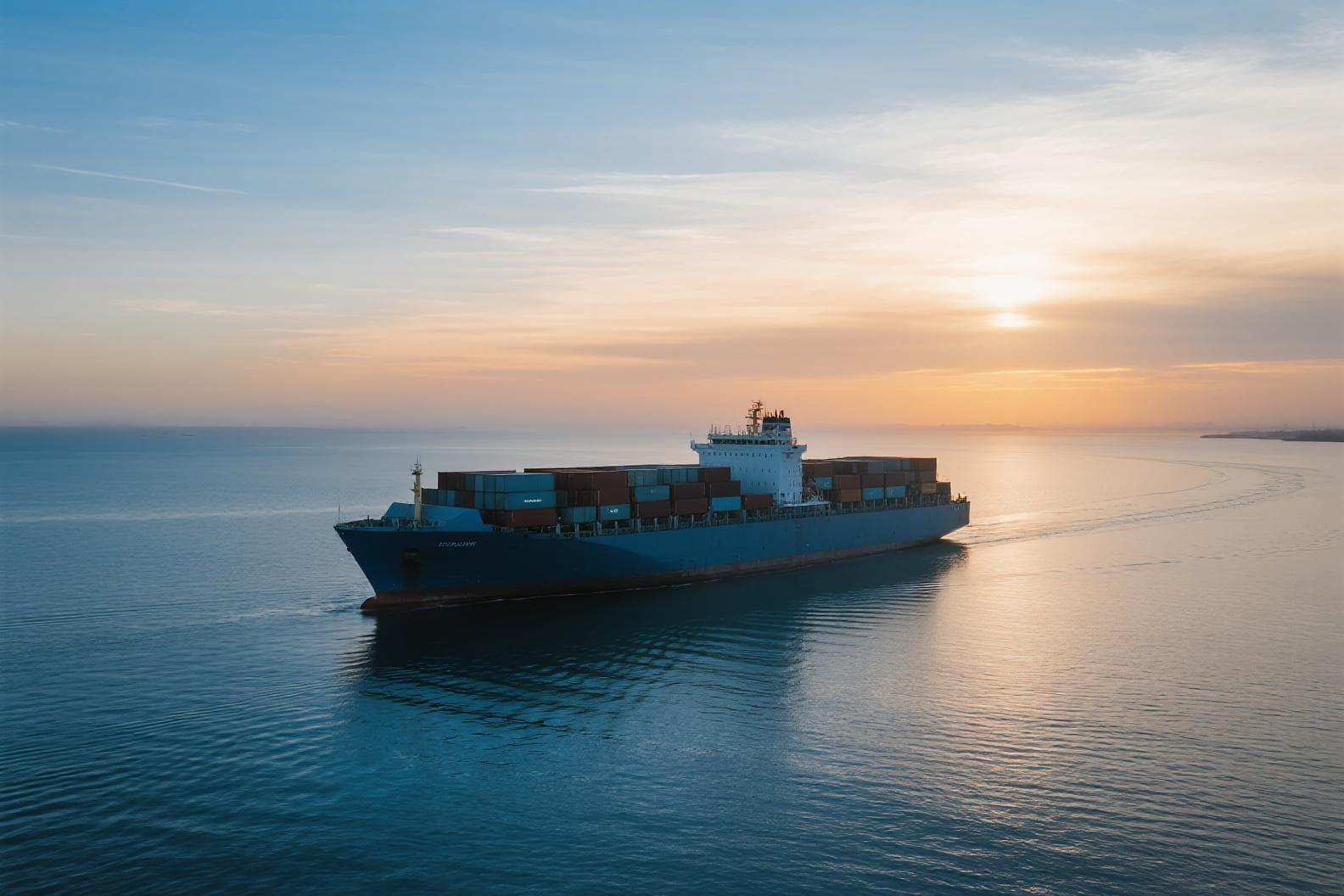

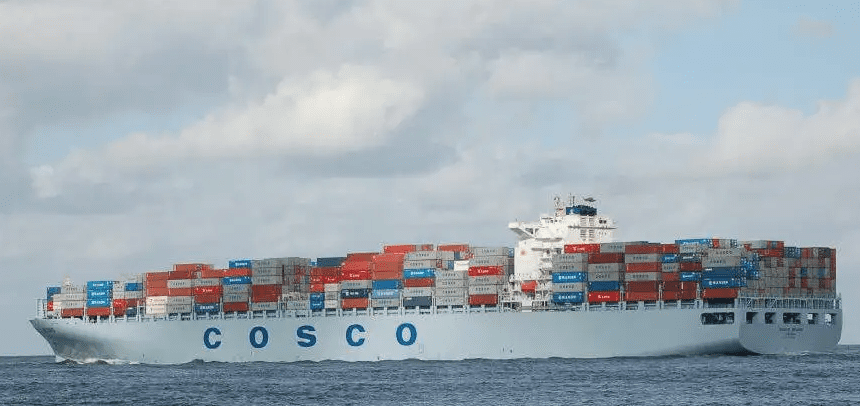






 Afrikaans
Afrikaans Shqip
Shqip አማርኛ
አማርኛ العربية
العربية Հայերեն
Հայերեն Azərbaycan dili
Azərbaycan dili Euskara
Euskara Беларуская мова
Беларуская мова বাংলা
বাংলা Bosanski
Bosanski Български
Български Català
Català Cebuano
Cebuano Chichewa
Chichewa 简体中文
简体中文 繁體中文
繁體中文 Corsu
Corsu Hrvatski
Hrvatski Čeština
Čeština Dansk
Dansk Nederlands
Nederlands English
English Esperanto
Esperanto Eesti
Eesti Filipino
Filipino Suomi
Suomi Français
Français Galego
Galego ქართული
ქართული Deutsch
Deutsch Ελληνικά
Ελληνικά Kreyol ayisyen
Kreyol ayisyen Harshen Hausa
Harshen Hausa Ōlelo Hawaiʻi
Ōlelo Hawaiʻi עִבְרִית
עִבְרִית हिन्दी
हिन्दी Hmong
Hmong Magyar
Magyar Íslenska
Íslenska Igbo
Igbo Bahasa Indonesia
Bahasa Indonesia Gaeilge
Gaeilge Italiano
Italiano 日本語
日本語 Basa Jawa
Basa Jawa ಕನ್ನಡ
ಕನ್ನಡ Қазақ тілі
Қазақ тілі ភាសាខ្មែរ
ភាសាខ្មែរ 한국어
한국어 كوردی
كوردی Кыргызча
Кыргызча ພາສາລາວ
ພາສາລາວ Latin
Latin Latviešu valoda
Latviešu valoda Lietuvių kalba
Lietuvių kalba Lëtzebuergesch
Lëtzebuergesch Македонски јазик
Македонски јазик Malagasy
Malagasy Bahasa Melayu
Bahasa Melayu മലയാളം
മലയാളം Maltese
Maltese Te Reo Māori
Te Reo Māori मराठी
मराठी Монгол
Монгол ဗမာစာ
ဗမာစာ नेपाली
नेपाली Norsk bokmål
Norsk bokmål پښتو
پښتو فارسی
فارسی Polski
Polski Português
Português ਪੰਜਾਬੀ
ਪੰਜਾਬੀ Română
Română Русский
Русский Samoan
Samoan Gàidhlig
Gàidhlig Српски језик
Српски језик Sesotho
Sesotho Shona
Shona سنڌي
سنڌي සිංහල
සිංහල Slovenčina
Slovenčina Slovenščina
Slovenščina Afsoomaali
Afsoomaali Español
Español Basa Sunda
Basa Sunda Kiswahili
Kiswahili Svenska
Svenska Тоҷикӣ
Тоҷикӣ தமிழ்
தமிழ் తెలుగు
తెలుగు ไทย
ไทย Türkçe
Türkçe Українська
Українська اردو
اردو O‘zbekcha
O‘zbekcha Tiếng Việt
Tiếng Việt Cymraeg
Cymraeg יידיש
יידיש Yorùbá
Yorùbá Zulu
Zulu